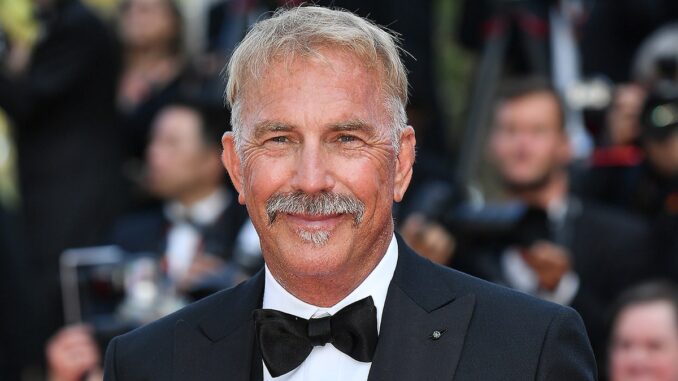
The sprawling, unforgiving landscape of Montana's Yellowstone Dutton Ranch has long been the stage for a modern epic, a saga of land, legacy, and the lengths a family will go to protect its heritage. At its heart, a figure as weathered and formidable as the mountains themselves: John Dutton, embodied with stoic gravitas by Kevin Costner. Costner's impending exit from Yellowstone is not merely a casting change; it is an earthquake that fundamentally alters the show's narrative trajectory and emotional resonance, forcing a premature end or a dramatically reshaped one that will forever feel incomplete.
To understand the seismic impact, one must first acknowledge the symbiotic relationship between Costner and John Dutton. Costner didn't just play Dutton; he became him, infusing the character with a quiet authority, a deep-seated weariness, and a patriarchal presence that rooted the entire series. His career, steeped in iconic Western roles, lent an authenticity to Dutton's dusty boots and steely gaze. John Dutton is not just a character; he is the immovable object around which all other narrative forces orbit. He is the bedrock, the north star, the embodiment of the ranch's soul, and the singular, unwavering force fighting for its survival against all encroaching modern threats. His withdrawal isn't just the loss of an actor; it's the amputation of the show's very limb, leaving a gaping wound where its heart once beat.
The most immediate and obvious impact lies in the narrative chasm it creates. Yellowstone has meticulously built John Dutton's story arc over five seasons: his battle with cancer, his reluctant foray into politics, his complex relationships with his children, and his unyielding commitment to the "will of the land." How does one conclude such a central, deeply entrenched character's journey without the character himself? The options are grim: an off-screen death, a dramatically reduced presence that feels like an afterthought, or a complete pivot that effectively writes him out of his own ending. Each scenario carries the bitter taste of narrative contrivance, robbing the audience of the earned closure they've invested years in anticipating. It's like a grand symphony ending abruptly before its final, powerful crescendo, leaving the audience with an unfulfilled harmony.
The show's ending, under this new constraint, will inevitably be forced to make significant concessions. The long-simmering conflicts – Jamie Dutton's betrayal, Market Equities' relentless pursuit of the land, the Dutton family's bloody history – were all ultimately tethered to John's defense of his ranch. Without him, the motivations behind these conflicts risk feeling diluted. Who now carries the same weight of the ancestral burden? While Beth, Rip, and Kayce are formidable characters, their arcs have largely been defined in relation to John. Beth's ferocity is her father's protector; Rip's loyalty is to the man who gave him purpose; Kayce's internal struggle is rooted in his lineage. Elevating them to fill the void is a necessity, but it cannot erase the fundamental truth that the king has left the chessboard mid-game, leaving the remaining pieces to scramble for a victory that feels suddenly hollow.
Beyond the plot mechanics, the thematic core of Yellowstone is profoundly shaken. The series is, at its heart, a meditation on legacy – what we inherit, what we protect, and what we pass on. John Dutton embodies this theme entirely. His fight is not just for property; it's for a way of life, a set of values, a piece of American history etched into the land itself. His absence from the final stand diminishes the very thing he fought for. The ending will lack the gravitas of its intended patriarch confronting his destiny, whether that be triumph or tragic defeat. It will be a tapestry unfinished, a crucial thread pulled, leaving the whole design to unravel at the edges.
For the audience, Costner's exit casts a long shadow of disappointment over the show's concluding chapters. Viewers tune in for the complete journey, for the satisfaction of seeing a story through with its intended heroes and villains. To be denied a proper, on-screen farewell to John Dutton – arguably the most iconic character of the modern Western landscape – feels like a betrayal of that investment. The anticipation for the series finale will be tinged with an unavoidable "what if," a sense of having witnessed an epic cut short, its potential for a truly grand and cathartic resolution diminished.
Ultimately, Kevin Costner's departure from Yellowstone is more than a creative challenge; it's a defining moment that will indelibly mark the show's legacy. The series will be forced to pivot, to improvise, and to construct an ending around a gaping void. While the supporting cast is strong enough to carry the narrative forward, the heart and soul of the Yellowstone Dutton Ranch, in the form of its patriarch, will be conspicuously absent. The final chapters, whatever their twists and turns, will forever carry the echoes of an unplayed symphony, a narrative truncated, leaving fans to ponder the ending that could have been, had its immovable anchor remained firmly in place. The mountains will still stand, but the figure who guarded them will be gone, leaving an enduring question mark over the fate of his beloved land.
